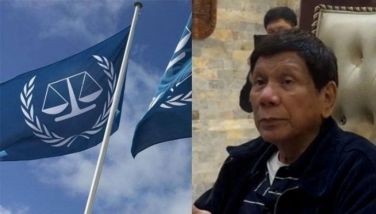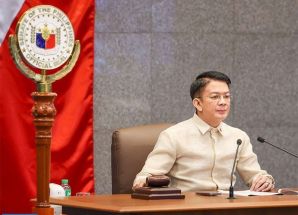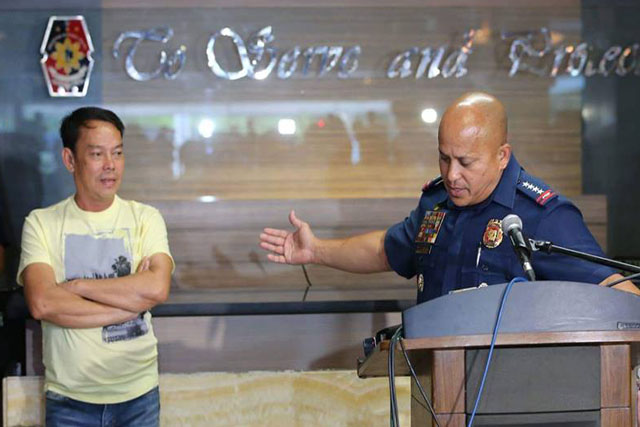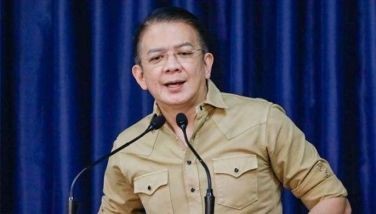Safe haven

We have long prided ourselves as a Christian nation that adheres to the values of compassion and kindness to fellow Filipinos and foreigners alike. Historically, our country has given refuge and succor to individuals displaced from their countries of origin due to conflict or persecution. The Philippines has already established an open-door policy and jurisprudence on asylum-seekers before the United Nations adopted the 1951 Convention Relating to the Status of Refugees and its 1967 Protocol.
Between 1923 and 2000, there were nine waves of refugees in the country, according to the United Nations High Commissioner for Refugees (UNCHR). A 2017 article written by Laurice Penamante stated that the country became a haven for White Russians, European Jews, Spanish Republicans, Chinese immigrants, Vietnamese ‘boat people’, Iranians, Indo-Chinese nationals and East Timorese.
In 1923, some 250 White Russians who opposed the Soviet Union’s communist regime chose to stay in Mindanao. In 1947, President Quirino welcomed 6,000 Russian immigrants who settled in Guian, Samar for four years. One of the early immigrants was Eremes Kookooritchkin, the grandfather of the late actress Jackie Kookooritchkin. In 1941, he applied for naturalization under Commonwealth Act 473, which a lower court granted six years later. The government appealed the case and questioned whether the petitioner is a Russian citizen or is stateless.
In Kookooritchkin vs. Solicitor General (1948), the Supreme Court ruled that the petitioner is a stateless refugee. The High Court said: “Appellee’s testimony, besides being uncontradicted, is supported by the well-known fact that ruthlessness of modern dictatorship has scattered throughout the world a large number of stateless refugees or displaced persons, without country and without flag.”
Further, the Commonwealth administration of President Manuel Quezon saved thousands of European Jews from Nazi persecution and the Holocaust before and during World War II.
Rights of a refugee
Who are considered refugees or asylum-seekers? Article 1, A (2) defines them as persons “with well-founded fears of being persecuted for reasons of race, religion, nationality, membership of a particular social group or political opinion, is outside the country of his nationality and is unable, or owing to such fear, is unwilling to avail himself of the protection of that country; or who, not having a nationality and being outside the country of his former habitual residence as a result of such events, is unable, or owing to such fear, is unwilling to return to it.”
The Convention, however, does not cover persons who have committed war crimes, crimes against humanity, non-political crimes outside the host country and violations against UN principles.
Moreover, every asylum seeker has the right to non-refoulement (non-return). Under Article 33 (1), “No Contracting State shall expel or return (refouler) a refugee in any manner whatsoever to the frontiers of territories where his life or freedom would be threatened on account of his race, religion, nationality, membership of a particular social group or opinion.” This provision does not apply to a refugee who has been convicted with finality of a serious crime or is deemed a security danger to his/her host country.
Hosting Afghan nationals
The fall of Kabul to the Taliban forces in August 2021 increased displacement in Afghanistan. By the end of that year, there were 3.6 million internally displaced Afghans and 2.6 million hosted refugees in several countries (UNCHR).
In response to the worsening humanitarian crisis in Afghanistan, the previous administration expressed a willingness to accept refugees to the Philippines. For instance, I facilitated an international humanitarian NGO’s request for humanitarian assistance from former President Duterte. PRRD allowed the temporary airport landing of an aircraft full of Afghan refugees. After a brief stop, the plane proceeded to its country of destination. The refugees did not process their asylum application here.
Last week Senator Imee Marcos filed Senate Resolution 651, calling for an investigation into the US government’s request to the Marcos administration to host the special immigrant visa applicants from Afghanistan. In the context of national security, the Senate committee on foreign relations chair is asking whether they are legitimate refugees or American spies.
Our Ambassador to America, Jose Manuel Romualdez, clarified that the 50,000 Afghan nationals are not actual refugees. In October last year, the US asked the Philippines to temporarily house former American government workers who fled Afghanistan together with their families (AFP). A Philippine facility will process the Afghans’ special immigration visa to enter American territory. The Biden government also promised to shoulder the cost of their stay in the Philippines.
Valid issues
Like Manang Imee, I have several concerns regarding our hosting of Afghan nationals. If they are bonafide refugees, the Philippines is bound by the Convention to conduct administrative proceedings to determine their eligibility. On humanitarian grounds, I have no objections if we accept them.
The justice department has a unit that identifies, determines and protects refugees and stateless persons (DOJ Circular 058-12). However, the Philippine government does not possess individual dossiers on the 50,000 Afghans. At this point, we have no way of knowing if some of these nationals have a connection with terrorist groups or committed grave offenses under international humanitarian law. Like the infamous War on Terror of America, the armed violence in Afghanistan is governed by Common Article 3 of the Geneva Conventions.
Again, the Afghans are not refugees, according to Ambassador Romualdez. So, how do we best deal with them? In the absence of a legal basis, we cannot accept them as economic migrants. Further, no law compels our country to become the processing center for a foreign state intending to host refugees. Why should we carry the onus for America? We are not a vassal state.
Since these Afghan nationals practically risked their lives serving Uncle Sam, the US should directly process their special immigration visa within their territory or jurisdiction.
- Latest
- Trending



























